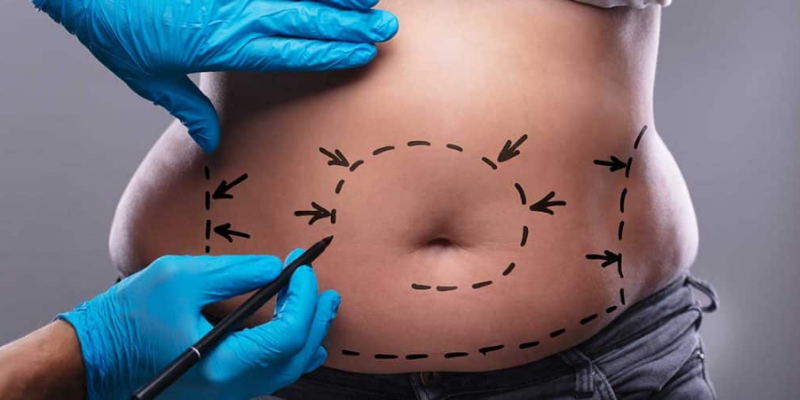Stomach Weightloss Surgery Diet
The stomach weightloss surgery diet for obesity is just as important as the surgery itself. Getting the right amount of carbs after gastric sleeve surgery helps people lose weight faster. You can think of it as 1 gram of protein having 4 calories, 1 gram of carbohydrates having 4 calories, and 1 gram of fat having 9 calories. So, once you get enough protein, you can find a good balance between carbs and fats. Changing their diet and way of life scares every patient and keeps them from taking the steps they need to get rid of their obesity. After gastric sleeve surgery, a person’s appetite almost completely goes away, and even small bites make them feel full, which means they can eat fewer calories. All foods with carbohydrates, like bread, pasta, and rice, should not be eaten. This is because the body shouldn’t take in these nutrients too quickly.
A dietitian who is an expert in his field can help with nutrition after gastric sleeve surgery. The diet list is made for each person. During the first two months, babies gradually move from liquid food to solid food. After an operation, feeding starts right away, especially with liquid foods. Vitamin and protein supplements, especially vitamin B12, are also started at the first stage. Foods that are drunk shouldn’t be high in fat and calories. Absorption doesn’t change because your stomach fully breaks down the food you eat. Your body won’t gain weight again if you figure out how many calories and how much fat are in the foods you eat.
How Should You Follow Stomach Weightloss Surgery Diet?
After stomach surgery, the number of nutrients will go down, so vitamins and minerals are needed to make up for that. So, vitamin and mineral supplements are given every day after the surgery. Foods that are high in nutrients and low in calories and fat are put on a nutrition list. This list shows how much a person likes vegetables, fruits, and other foods. Together with the dietitian, the patient makes a list of foods that he or she will enjoy and eat healthily.
For the best results, it’s important to follow our post-operative instructions and get in touch with us if you have any questions or concerns. The time it takes to heal after each procedure is different, and it can also be different for each person. People can usually go back to normal activities, like work, a few weeks after a laparoscopic procedure. Some people may be able to do their normal things even sooner. You will be put on a special, temporary diet right after your surgery to help you heal.
Liquid Diet Phase After Weight Loss
In the days and weeks after surgery, it’s important to pay close attention to what your doctor tells you to eat and what you can’t eat. Your specific instructions may change based on the type of procedure and how healthy you are. The bariatric lifestyle is the best way to lose weight and keep it off for good.
Bariatric surgery is a good way to help people who are overweight lose weight, but it won’t work if you don’t make changes to your lifestyle. Once you are done with your post-surgery diet, it is time to make plans for the rest of your healthy, active life.
Eating Habits After Weight Loss Surgery
Once you can eat a wider range of foods, it’s more important than ever to keep track of what you eat so you can see how much you’re really eating and make sure you’re getting enough protein. Your main parts of should be like:
- Lean cuts of meat and dairy with low fat
- Eggs and protein shakes are also good sources of protein.
- Vegetables that don’t contain starch, like leafy greens, carrots, broccoli, tomatoes, mushrooms, and more
Things you should add your diet in smaller portions:
- Fresh fruits, especially low-sugar ones like berries and melons
- Healthy fats, like cooking oils made from plants and small amounts of nuts
- Sweet potatoes and oatmeal are examples of starchy vegetables and whole, unprocessed carbs
Things you completely avoid after weight loss surgery:
- Even if they are labeled “light” or “high-protein,” pre-packaged snacks like bars, chips, dried fruit, and granola are not healthy.
- Carbohydrates like pasta and bread that have been processed
- Fast food and fried foods
- Sweets, baked goods, and cookies
Workout After Weight Loss
Exercise is important for good health in general. People with bariatric conditions who exercise may be able to lose weight and keep it off for longer, and their diabetes and joint pain may improve more than those who don’t. Here are some tips on how to work out after having bariatric surgery:
Check with your doctor before you start a new exercise plan, especially if you just had surgery and are still getting better. Plan when you will work out. The most common reason why people don’t work out is that they don’t have time, but you should put your health first and make time to work out.
The best workout is the one you look forward to doing. If you like nature, you should go hiking. If you get motivated by being around other people, try Zumba or another group workout class. Try out different workouts to push yourself and find the ones you like best.
Diet and exercise are not the only parts of a healthy life after bariatric surgery. Many people who have bariatric surgery used to eat to deal with stress or feel better when they were upset. Make a list of healthy ways to deal with stress that don’t involve eating. Some ideas are working out, gardening, writing in a journal, or making art (like coloring books for adults!).
Avoid Alcohol
There are several reasons why people who have had bariatric surgery should not drink alcohol. You will feel different after surgery if you drink alcohol, which can be bad for your health and well-being. Also, alcohol has calories that don’t do anything, which can make you gain weight.
After bariatric surgery, your health as a whole can change a lot, especially if you had Type 2 Diabetes before the surgery. Nearly 90% of bariatric patients who have surgery will be able to take less diabetes medicine, and up to 78% will have their diabetes go away completely and no longer need medication. Check in with your primary care doctor to see if you still need to take medications for your blood pressure, cholesterol, or anything else.
Is Surgery for Weight Loss Viable If I Can’t Lose with Diet and Exercise?
If diet and exercise are ineffective in your weight loss journey, speak to your doctor about other options. Surgery for weight loss can be an effective and viable option depending on the individual’s situation. It has been proven to reduce the risk of severe medical conditions associated with obesity, such as type 2 diabetes, heart attack, stroke, and certain types of cancer. Additionally, it can lead to improved quality of life, increased mobility, and greater self-esteem. However, bariatric weight loss surgery should only be considered after careful consideration since it is a significant operation with risks such as infection or complications from anesthesia.

Most doctors will require individuals to have undergone a healthy diet and exercise plan before recommending bariatric surgery. Discussing the various weight loss options with your doctor is key in determining if surgery for weight loss is the right choice for you. Your doctor can also provide information on lifestyle changes that can support the success of any chosen course of action. In addition, they can help you understand any risks that may come with this decision and provide resources so that you feel prepared and supported throughout the process. With guidance from a medical professional, surgery for weight loss could be a helpful step toward achieving your health goals.



